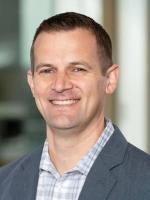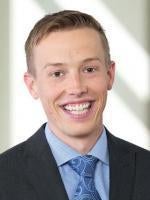It is now over 10 years since the Bilski decision was handed down by the United States Supreme Court. In that decision and several other decisions that followed (i.e., Mayo, Myriad, and Alice), the Supreme Court pronounced patent claims directed to abstract ideas not eligible for patent protection. The Federal Circuit has since been carefully treading water when deciding patent matters dealing with patent eligibility under 35 U.S.C. § 101.
In recent years, the majority of § 101 decisions from the Federal Circuit have found patent claims directed to abstract ideas and as such ineligible for protection based on a multi-step test. In a relatively small number of cases, the Court has upheld the validity of claims when claim features have been meaningfully tied to a technological improvement or a particular medical treatment, or when a combination of the recited elements has been determined not to be “well understood, routine and conventional.”
Section 101 jurisprudence unfortunately remains unsettled in regards to the key determining criteria, which can often be subjective in nature. Further, factors resembling those applied to an obviousness determination under 35 U.S.C. §103 have begun to appear in the analyses underlying 35 U.S.C. §101, particularly when applied to the aforementioned “well-understood, routine and conventional” inquiry of the multi-step test. As a result, many systems and methods, which traditionally would have been deemed patent-eligible have been held ineligible by the Federal Circuit.
In 2019, for instance, the Court found claims directed to a networked group of charging stations for electric vehicles to be abstract, even though the claims were directed to physical controllers and transceivers in communication in a computing network. ChargePoint, 920 F.3d 759 (Fed. Cir. 2019). Also, in 2019, the Federal Circuit found claims directed to a garage door opener with explicitly recited electronic components ineligible. Chamberlain Group, 935 F.3d 1341 (Fed. Cir. 2019). According to the Court, the claimed wireless transmitter was an obvious improvement over the conventional wired transmitters.
Taking a refreshingly different view, albeit in a non-precedential opinion, on October 12, 2020, a Federal Circuit panel found claims directed to an aircraft engine washing system patent-eligible in EcoServices, LLC v. Certified Aviation Serv., LLC (EcoServices), even though the claims broadly defined the functions associated with a system for washing an aircraft engine according to the type of the engine as detected by a sensor. Claim 1 below is a representative example of the approved claims:
1. A system for washing turbine engines comprising:
a washing unit for providing a washing liquid to the turbine engines;
an information detector configured to gather information related to engine type; and
a control unit configured to accept the information related to engine type from the information detector and to determine a washing program to be used as a function of the information relating to engine type from a set of preprogrammed washing programs, and further configured to regulate the washing unit according to washing parameters associated with the washing program used.
EcoServices challenged the validity of the asserted claims by alleging that the claims were directed to an abstract idea because the recited subject matter was simply an automated human process for washing turbine engines. The panel rejected this challenge noting that claim 1 was tied to technical advantages identified in the specification and recited improvements over the conventional human-operated washing systems. The Court ultimately held that claim 1 was eligible because it recites claim language directed to a specific system that improves jet engine washing.
In response to EcoServices’ contention that the claimed subject matter was “simply the idea of using a computer to replace human operators in a known process,” Judge Schall explained that the invention to which the claim language was directed was more than a desired result or a computer merely practicing a known process. Rather, the claimed subject matter achieved a level of automation that provides an improvement over the prior art human-operated washing systems by reciting a specific combination of a type of washing unit, information detector, and control unit. Accordingly, the Court viewed claim 1 as non-abstract due to the specific claim language.
The Court carefully identified technical advantages in the specification such as “a higher degree of quality of an engine washing procedure,” a “minimize[d] risk of wrongly operat[ed] equipment,” “a higher degree of safety,” and “cost efficien[cy] and reliab[ility].” Additionally, the panel found these technical advantages were tied to the language of claim 1 and contrasted the specification with the Chargepoint specification by explaining that the Chargepoint specification never suggested that the charging station itself is improved from a technical perspective or that it would operate differently than it otherwise could. ChargePoint, 920 F.3d 759 (Fed. Cir. 2019)
The Court also identified technical improvements in the claims over the prior art. For example, the panel considered whether the “claims simply use a computer as a tool to automate conventional activity.” The Court compared claim 1 of the present application to claim 1 in McRO, which employed a computer “to perform a distinct process to automate a task previously performed by humans.” Similar to claim 1 of McRO, the panel reasoned that claim 1 was directed to a specific combination of a type of washing unit, information detector, and control unit configured in a certain way to create technical improvements to systems for washing jet engines. McRO, 837 F.3d 1299, 1314 (Fed. Cir. 2016). Judge Schall emphasized that automation of a task previously performed by humans does not simply mean the claimed system is necessarily directed to an abstract idea.
The EcoServices decision provides a fresh outlook and reasoning that may help patent applicants overcome § 101 rejections by the Patent Office and invalidity assertions raised during litigation. Applicants and patent owners, relying on the analysis provided above, may want to concentrate on drafting claims that recite specific language and clearly identify technical improvements over the prior art. Applicants should also consider including a detailed discussion of the technical advantages of the various embodiments of the invention in the specification.
Additionally, the specification should also introduce evidence of a long-felt or unresolved need that prior systems were unable to address or achieve. Applicants can, for example, focus on the improvements over the prior art and how the invention operates differently to overcome points of failure of older technology. Applicants can also reference, where possible, evidence of commercial success due to the disclosed improvements or special features claimed or any secondary indicia that goes against an allegation that the subject matter claimed is routine and conventional.
Software-related method claims that resemble known processes are particularly vulnerable to eligibility challenges under § 101. For such method claims, the EcoServices decision provides guidance to Applicants for overcoming eligibility challenges. This guidance suggests the value of explicitly describing the technical problems in the specification, drafting claim language directed to detailed and particular features, and demonstrating or otherwise providing explicit explanations of how and why the invention operates or provides benefits that differ from well-known, conventional and routine approaches. Practitioners should be mindful while drafting the application to address the above concerns to avoid patent prosecution landmines and invalidity attacks down the road.






 />i
/>i
